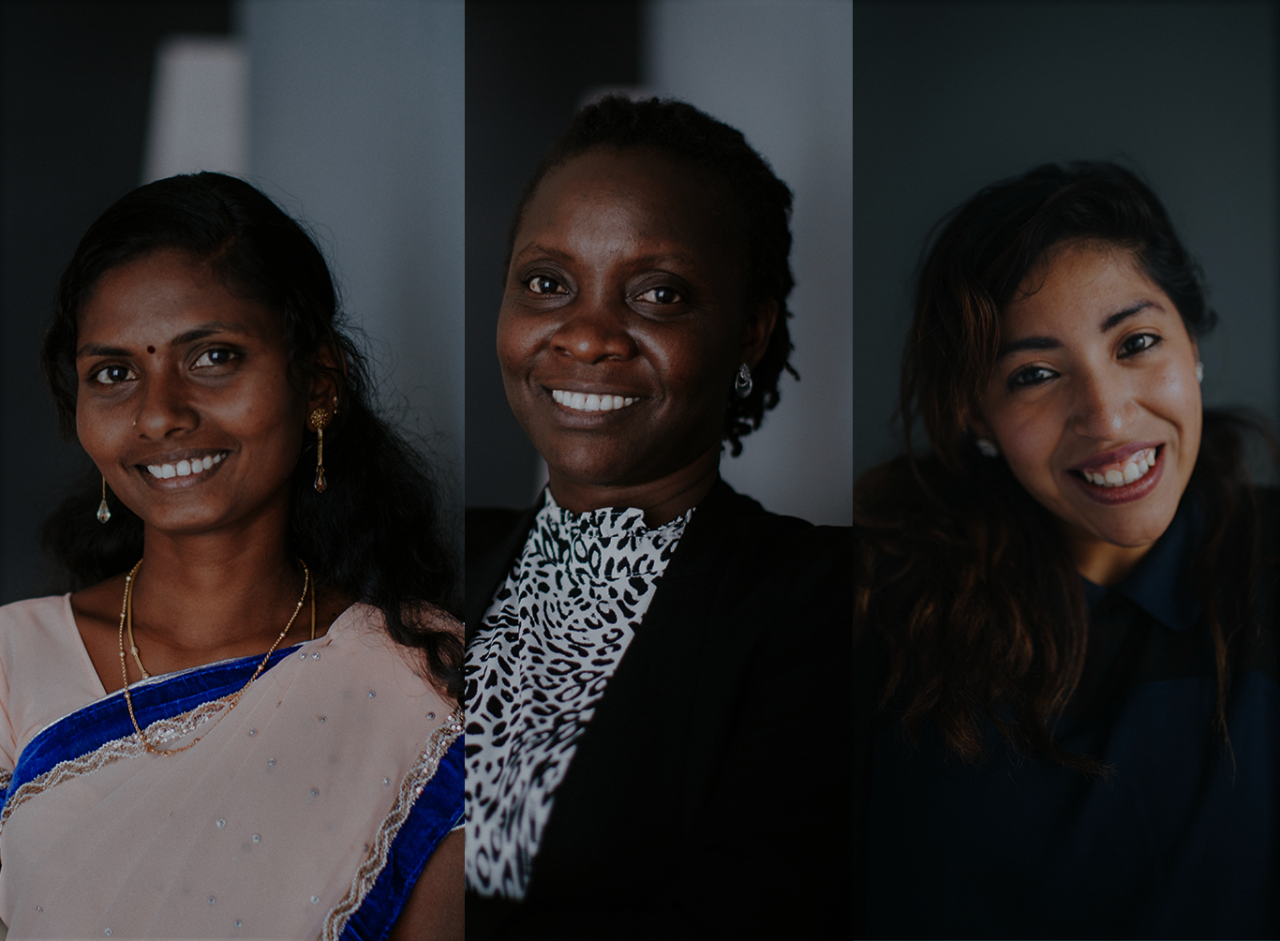This article was first published by the World Economic Forum on International Women’s Day.
This is an International Women’s Day like no other. COVID-19 lockdowns and the associated school closures and joblessness have placed women and girls at greater risk of violent abuse. As national governments and donors respond to the pandemic and invest in rebuilding communities, we at the Global Survivor Network have three recommendations for investments that will keep women safe now and after COVID-19.
1. Ensure justice for survivors of violence. Survivors of violence want and deserve justice for those who committed crimes against them, but only a fraction of them have access to the protection of law. In 2012, My husband and I (Paychaiymmal) were released from years of slavery in a rock quarry. I used to fear my owner so much. I didn’t even have the courage to tell the truth to government officials about how much we suffered. Even after being rescued, I was afraid of my owner and it took a long time for us to heal from the trauma. But I testified boldly against my owner and he is behind bars today.
Survivors of violence need justice—we want to see those who enslave and abuse people convicted of their crimes. My own case took ten years to deliver justice and put the man who enslaved us in jail. That is too long. Governments should invest in special courts for victims of violence and make sure cases are heard in a timely manner. Prosecutions of violent criminals must go faster. One way we can end slavery is for all the heartless men like my owner to see that there is a consequence for their crimes. When justice is delivered through the courts, that will send a strong message to others.
2. Protect women who report violence. UN Women cites studies showing that less than 10 % of domestic violence victims report their abuse to the police. Women who do report crimes to the authorities are at high risk of reprisals from their assailants. All forms of violence against women are under-reported, in part because of fear of reprisals. If victims do report abuses, there is unlikely to be safe shelter for them. The COVID-19 pandemic has worsened their situation, by trapping them in their homes with violent partners.
When my mother and I (Jakelin) reported my father’s abuse, the police did not believe me at first and they let him go free. We were scared and did not know where to go. Governments need to invest in temporary shelters for women and children. During the COVID-19 pandemic, these shelters need to be equipped to follow health and safety guidelines that keep victims and staff safe from the coronavirus as well.
3. Engage survivor leaders to design trauma-informed services.
As a survivor who works with survivors of violence, I (Victoria) believe immediate crisis care programs must be informed and shaped by the survivors who use them. This will ensure that the needs of the survivors are being met and no additional harm is occurring during this delicate time. That includes immediate protection for women and children fleeing violence and enforcement of restraining orders. Intake processes must be trauma-informed so victims are not being interviewed over and over. Doctors and nurses must be trained to properly examine and treat sexual assault victims, so they aren’t re-traumatized by the experience.
Donors providing aid and governments developing policy must seek out input from survivors of violence, especially women. In many parts of the world, women are the social adhesion which binds families and communities together. The many stakeholders working on programs and policies to address violence need to measure whether their programs are truly meeting the needs of survivors, especially women. To accomplish this, survivors need to be in places where decisions are made and policies are formed. This is the only way to ensure the justice system is working for the people who need it the most.
The pain we three survivors have experienced has motivated each of us to speak out so that no one need go through the hurt that we experienced. We also believe that joining our voices together makes us stronger and will inspire others to work for justice.
Pachiayammal Arul is a survivor of forced labor and is now a leader of the Released Bonded Labourers Association (RBLA) in southern India. Jakelin Mayen is a survivor of child sexual abuse who is now a law student and staff member of International Justice Mission in Guatemala, and a founding member of the survivor advocacy group “Mi Historia Importa,” (My Story Matters). Victoria Nyanjura survived eight years of captivity as a child by the Lord’s Resistance Army in northern Uganda. She founded “Women in Action for Women” that focuses on livelihood for women affected by violence.
All three women are founding members of the Global Survivor Network and members of its Leadership Council.
Learn more about the Global Survivor Network.
